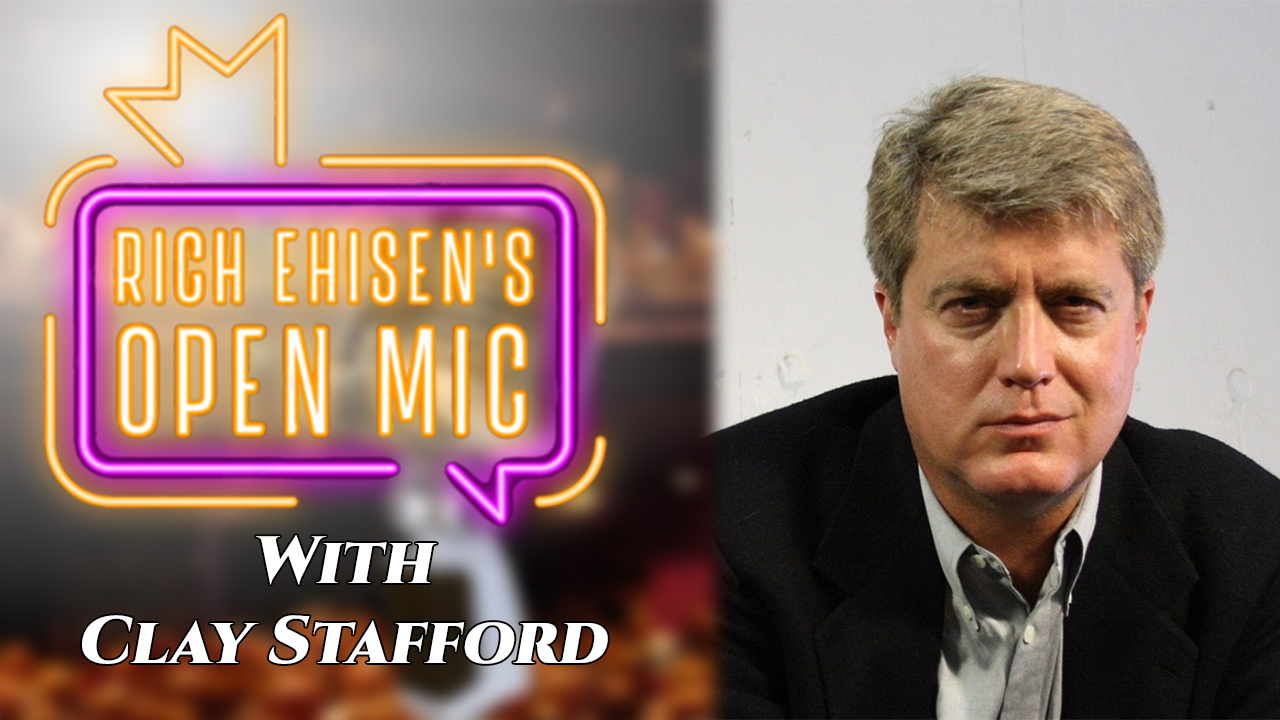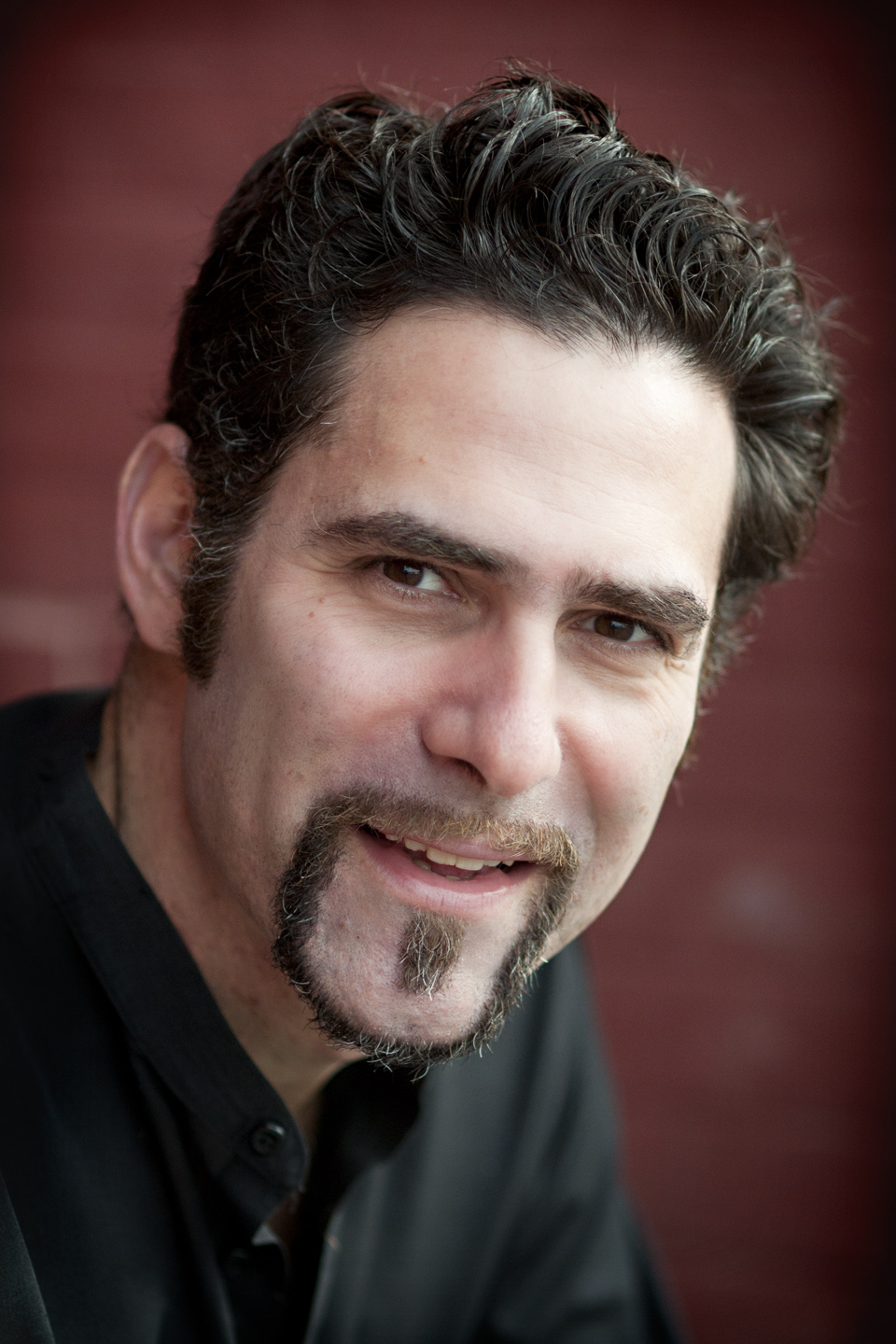 Over his long career, WordServe Literary Group founder Greg Johnson has shepherded countless authors and books from concept to publication. Most of those are in the faith-based market, with a large number of general and military market sales as well. But the changes that have impacted the publishing industry over the last two decades have hit the faith-based market too, making it more challenging than ever. We sat down recently to talk about that evolution, what publishers are looking for now and whether writers conferences are doing right by aspiring authors.
Over his long career, WordServe Literary Group founder Greg Johnson has shepherded countless authors and books from concept to publication. Most of those are in the faith-based market, with a large number of general and military market sales as well. But the changes that have impacted the publishing industry over the last two decades have hit the faith-based market too, making it more challenging than ever. We sat down recently to talk about that evolution, what publishers are looking for now and whether writers conferences are doing right by aspiring authors.
OM: Your agency, WordServe Literary Group, specializes in authors coming from a faith-based perspective, but also within a fairly broad range of genres. Tell me a bit more about the agency and what you look for in an author.
GJ: I started as an agent in 1994, mainly doing Christian books. I knew there was bigger money in New York with different types of books and bigger authors and that’s fine, but my heart was to develop projects and work with authors who were making a difference for the kingdom. I continue to do that, but 12 or 13 years ago I got introduced to several of the “Band of Brothers” [members of the U.S. Army’s 101st Airborne Division in WW II, made famous by historian Stephen Ambrose’s 1992 book and the subsequent HBO miniseries of the same name], a time when they were all rock stars. I love military books, and so I really started building up a nice niche in military nonfiction. So while I do currently have a very broad range of books, it still probably 70 percent Christian-type books and 30 percent general market in a specific category, with the goal of getting to 50/50 within the next 5 years. I’m mainly looking for categories where I don’t have to fight with the author about faith issues. It’s nice if you do have the same worldview, but I just don’t want them to have an anti-Christian worldview. And so I pick categories like health and business and military non-fiction and memoir, humor, sports; those are some of the general market categories I’m actively pursuing.
OM: Just to be clear, because you also represent General Market books, does a book aimed at that marketplace still need to come from a Christian perspective for you to consider taking it on?
GJ: I’ve got three other agents that work with me, and a couple of them are active in the YA market in New York, and we’ve had some good success there (author Jamie Sumner). So I don’t necessarily have a litmus test, but I make sure people go my website and see that we’ve historically represent authors of faith.
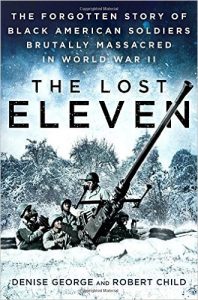 OM: You mentioned that you handle a lot of military-themed books. Tell me a bit about that. Are there certain themes there you are looking for?
OM: You mentioned that you handle a lot of military-themed books. Tell me a bit about that. Are there certain themes there you are looking for?
GJ: The first-person accounts or a story from the perspective of just a couple of people seem to do better. I’ve done military books that are all over the map and with nearly every New York house, as well as with several Christian houses and a lot of B-level houses. I have a good instinct for it. I know what’s a good story, and I know if it’s well written.
OM: Is there a military theme that you generally really don’t want to see or don’t want to represent?
GJ: Well, unfortunately Korea has not been a goldmine like WW II has been in many ways. People are interested in that greatest generation and their personal stories. Publishers have either wanted WW II, told by the guy if he’s alive, or the Navy Seal- or Green Beret-type books from Afghanistan. Very few get sold in between, though I would love to see more Korea and Vietnam era books.
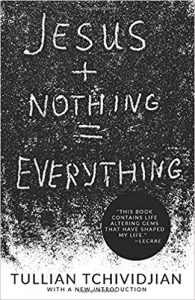 OM: The WordServe site does something I don’t think I’ve seen another agency do, which is to showcase a list of collaborators. I presume these are experienced writers you would pair with someone who has the platform in their field but not the writing know-how, correct?
OM: The WordServe site does something I don’t think I’ve seen another agency do, which is to showcase a list of collaborators. I presume these are experienced writers you would pair with someone who has the platform in their field but not the writing know-how, correct?
GJ: Yes, that’s exactly right. I work with some authors that have big platforms but who just don’t have time to write, so they become the Frank Sinatra of their work where they can sing the notes but they just can’t write the melody. I mean, if someone has the content, they’ve got the goods, they’ve got the life experience, they’ve got the story, are we also going to make them be Ernest Hemmingway in order to get their story published? That just doesn’t make sense. So I always have a strong bank of collaborators. Usually between 15-25 percent of my business, depending on the year, comes from collaborators. I find that a lot of times an experienced novelist who can’t seem to sell books anymore becomes a good collaborator because they know how to tell a story and set a scene and do dialogue and they understand plot and story arc and all the rest of the things that are necessary to tell the story. And then one of my clients, Mark Atteberry, is a pastor who has written several books with Thomas Nelson. He just doesn’t want to play the platform game, but he can still write so I hook him up with several pastors who don’t have time to write. It’s a good way for them to keep doing the things that they love and be involved in Christian books or genres that they love without having to play the platform game that publishers demand so much these days
OM: The publishing industry has been undergoing so much change in the last twenty years. How has the faith-based market evolved during this time?
GJ: When I first started there were 6,500 Christian bookstores, and people could walk into stores and they would just browse. It was an event. But these days there’s just not the opportunity for browsing, which means the backlist has suffered a lot because people can’t very often go in a bookstore and find a book that sold a year and a half ago. So the CBA [Christian Booksellers Association] industry has become much more front list driven. It used to be I would do a deal with Zondervan (for example) and they would base their advances on sales over three years, whereas general market New York houses typically base their advance on sales for six to nine months, or sometimes a year. That is a big change. Publishers have had to become more front list driven because they know that 80 percent of the sales of any book are going to happen within those first six months. And then the second thing is – and New York has always known this – they always want to publish famous people because they have a built-in audience. With the Christian market – when there were bookstores – they could get away with a great cover or great title like Blue Like Jazz. You look at that and you have no idea what it’s about, but it’s kind of intriguing. But I don’t think that title would sell these days from a first-time author because it doesn’t mention the market, it doesn’t tell people what the felt need is, and it would just be hard to find. So publishers generally are looking for authors who already have that built-in platform. That’s mainly the big change.
OM: Along those lines, what is the biggest challenge in the faith-based market these days? Conversely, what is the biggest opportunity for writers in this market?
GJ: For sure the discoverability of books is the biggest challenge. We’ve only got about 1,200 bookstores now, and that includes church stores where people can buy books. I live in Denver, which has about 2 million people but I think there are only two Mardel stores, which makes it hard to find out about books. In the old days we had Christian TV and Focus on the Family talking about books, we had Christian radio, we had at least two or three times more Christian magazines that aren’t there anymore that would do reviews and excerpts. All those things are pretty much gone. People are not listening and they’re not reading magazines, so what publishers have to do then is rely on what the author has already done to find an audience. Those old days are gone and we can lament them all we want but there’s nothing we can do about it.
And then the biggest opportunity I think are for those already doing ministry and are building their audience. I’m discovering that they get contracts, but not if they just have a blog following because people are tired of looking at blogs or following a podcast. But if they’re doing something to minister to an audience about a topic, or if they’re a novelist and are creating great stories and offering them for .99 cents or something like that to get them hooked on their style and their genre etc., then publishers are looking at that. And first-time authors oftentimes have more hope over authors whose last book didn’t sell very well. We are finding contracts for 15-20 new authors every year, which you might think is counter-intuitive, But they don’t have a bad sales history against them. When publishers or retailers buy books they plug in the name and see what their last book did, and if it didn’t do very well, that author’s career might be done . . . at least for many years. So I’m selling more new authors than established authors in some genres. That’s the opportunity.
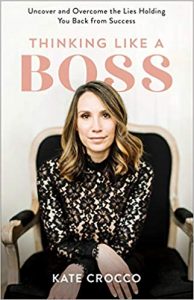 OM: The evolution of self-publishing has also changed the game for a lot of writers. How has the growing acceptance of this form of publication impacted your business?
OM: The evolution of self-publishing has also changed the game for a lot of writers. How has the growing acceptance of this form of publication impacted your business?
GJ: It hasn’t and here’s the reason. With fiction, we’re down to maybe five or six or seven advance and royalty paying publishers, where we used to have twenty-plus. This doesn’t include the no-advance houses that we do business with. The loss of fiction publishers really was a big blow, and that’s when a lot of these people went to self-publishing. But the success rate for those authors is few and far between. I would say 95 percent of any self-published authors will sell less than 500 copies. People will self-publish three or four books and then they’ll say, “wow, maybe I should get a real publisher so I can make some money.” But now I can’t get them a real publisher because they’ve shown they don’t know how to sell books.
Non-fiction is a little different because there are so many niches within non-fiction that somebody could self-publish in and do quite well. I’ve had people come my way and they’ve already sold ten thousand copies of their non-fiction book, and boy I can sell that to a publisher every day. I can sell it if they’ve sold three thousand, because it tells the publisher that they’ve come to play and they know how to market books. These days I’m telling almost everybody that 50 percent of your time is writing and 50 percent of your time is marketing, and if you’re not going to do that you’ve likely picked the wrong profession because you’re going to spend a lot of time writing your book and nobody is ever going to read it. You’ve got to have a marketing sense and you’ve got to work hard at it. So oftentimes an author will come our direction with a great book idea, but no platform. We’ll just say we love the idea, we love the writing, we think it’s a good idea, but I can’t sell that today. If you spend a year working on your platform and get your email list from 2,000 to 10,000 – and I can help you do that – then you might have a career. But until then I don’t know if I can help you.
 OM: I think platform building is a source of great frustration for a lot of writers:
OM: I think platform building is a source of great frustration for a lot of writers:
GJ: And the frustration is that there’s just a lot of noise out there. Everybody is blogging or wanting to do a podcast. I think most of us, the average people, were kind of enamored with it initially, but now it’s just too much. We don’t have time for it all (except our long-time favorites). So a lot of people have just turned off every blog and aren’t doing much besides listening to a few podcasts that they like, and so we’re back to a discoverability problem. I think authors that are succeeding out there are working hard at offering free stuff to their constituents and helping them along the way. They’re building their email list so that when it is time to promote a book, they’ve got a ready audience, and that just takes time.
OM: What is your perspective on conferences? Do you attend a lot of them? And if so, do you gain many new authors from those events?
GJ: I like going to them because I get to meet other agents and/or editors and then a few of my clients might be there too. But especially in fiction I think we build up people’s hopes, and that’s wrong. There are maybe only eight publishers out there that are actually doing fiction, and I think that’s aggressive. There might be only six. And how many new authors are they going to do every year? They’re going to do two to four. Let’s say its four, and if we have eight publishers that’s 32 authors. And now how many people at ACFW [American Christian Fiction Writers] are trying to get published? They have 3,000 members, and if you combine that with hundreds of novelists who aren’t members; those who just go to writer’s conferences…and pyramid is pretty small at the top as to who gets traditionally published. And so now we have 32 slots open – and again I think that’s very aggressive – 32 slots open for maybe 5,000 people out there trying to get published by a traditional publisher. Now somebody is making money off of those people, and very few are ever going to see that money back. So when it comes to fiction, I have a hard time with all that.
To your question, I don’t find too many authors at conferences. There are maybe one or two a year that are truly ready to get published. I’ll find other writers who I want to help build their platform and to give them suggestions, and if they do the work and put together a great proposal I don’t mind trying to see if we can get them sold because a lot of people have good things to say. But it’s tough. I will probably always go to maybe three conferences a year, but I won’t do much more than that.
OM: How many submissions would you say you get in an average week?
GJ: We easily get 25-50 every week. And we’ll have times in the summertime or over the holidays when people are home and we get inundated. People are taking the week off and so they’re working on their book and making queries. And of course most weeks of the month we say no to everybody because there’s not something that piques our interest and either we’re not the right agent or they’re not the right author.
OM: What is the biggest misconception writers have about agents?
GJ: I think whatever misconception they have is probably based in reality. There are agents out there who don’t know what they’re doing on contracts, and so writers wonder, “if this agent doesn’t know what they’re doing, then why do I need an agent?” And of course a lot of us do know what we’re doing. I’ve done 2,300 contracts with 100 different imprints over the last 26 years so I know what I’m doing. Another thing is that I think a lot of agents make a deal and disappear. That’s certainly true with New York agents. They are there to be deal makers, not to be hand holders. They’re not going to read a whole book unless they just love that author and it’s a really big author or they believe in the book. They’re going to do the deal and disappear and I get that. I have never done that. You have to walk with an author and their intellectual property to shepherd it the whole way from proposal to publication. I tell my authors, ‘I’m sorry, this is the worst part about it. It’s easier to write a whole book than it is this proposal. Here’s my template, I need 50 pages and it will be harder than writing the book and but that’s what we have to do these days to sell a property.’
 OM: I like to end with something fun. Let’s say I can put you together for dinner and conversation with just one of the following three people. Which one would you choose and why? Your options are: Gen. Dwight D. Eisenhower, Napoleón Bonaparte, or Abigail Adams.
OM: I like to end with something fun. Let’s say I can put you together for dinner and conversation with just one of the following three people. Which one would you choose and why? Your options are: Gen. Dwight D. Eisenhower, Napoleón Bonaparte, or Abigail Adams.
GJ: Well, all would be fascinating but just being a military buff I would definitely have to say Eisenhower. I’ve actually had clients who met him and knew him. I’m a WW II buff – I know enough to be dangerous, I could pretty much talk about any battle, any theatre, any general, I sort of know all that stuff – and so that’s why I would pick Eisenhower, although Abigail Adams would be a close second for me.


